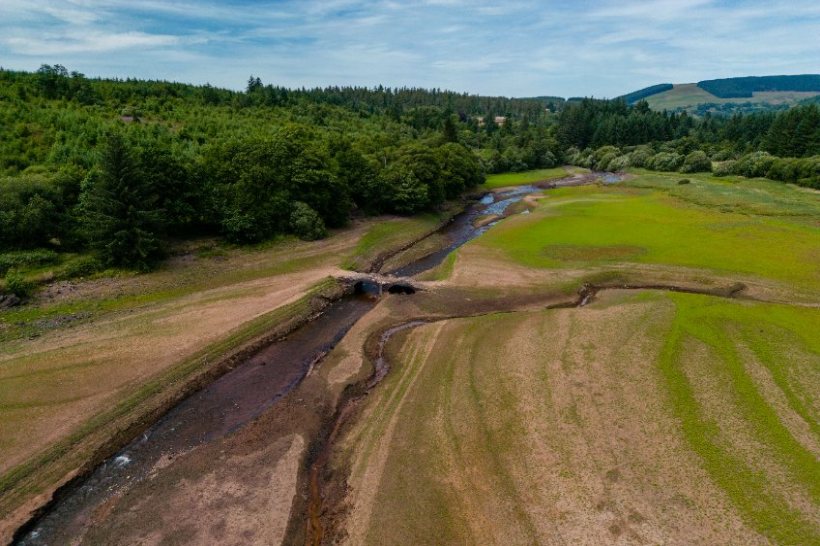
The National Drought Group (NDG) has agreed further steps to manage the current drought and to start work to reduce the risk for next year following a meeting of senior decision-makers.
The meeting, which took place on Tuesday (23 August), highlighted the need to support farmers and growers, including by helping them continue to access water.
Members of the NDG, which includes organisations such as the NFU and AHDB, also agreed to accelerate measures to ensure long-term water security "in the face of a growing population and climate change".
Despite the recent scattered rainfall, this year has seen the driest summer for 50 years, and the driest ever recorded for Southern England.
The prolonged hot dry weather has led to exceptionally low river flows and low groundwater levels and a decline in reservoir levels, with some well below average for the time of year.
Large parts of the country are now in drought status, including the South West, Yorkshire, East Midlands, Kent and South London and the West Midlands, among other regions.
Other areas classed as being in ‘prolonged dry weather’ include Greater Manchester, Merseyside and Cheshire; Wessex; and the North East.
The only area now at ‘normal water resource’ status is Cumbria and Lancashire.
Following the NDG meeting, Environment Agency chief executive, Sir James Bevan said: “Despite recent rainfall and the pause in the hot dry weather, we must continue to manage water wisely.
“Both for the coming year and, with the impact of climate change, for the coming decade, a complete gear change is needed for how water companies and all water users, from farmers to households, think about how they use water and understand its fundamental value.
“This summer should be a wake-up call for how the nation prepares for weather extremes and how we make the very best use of our water resources."
The NDG meeting agreed that sufficient rainfall over the autumn and winter would replenish rivers, lakes, groundwaters and reservoirs to normal levels by the spring.
However, they said that planning should begin now on how best to manage any water shortfalls that might arise in 2023 in the event of a dry autumn or winter.
Water Minister Steve Double said: “More work must be done to ensure that we push forward investment to cut leaks and better prepare for prolonged dry weather for this year, next year and the coming decade.
“Water companies need to be putting the needs of their bill payers front and centre of their plans - which means redoubling efforts to cut leakage and protect our natural environment.”
The NDG will meet again on 19 September to review the latest situation and agree any further necessary measures.
